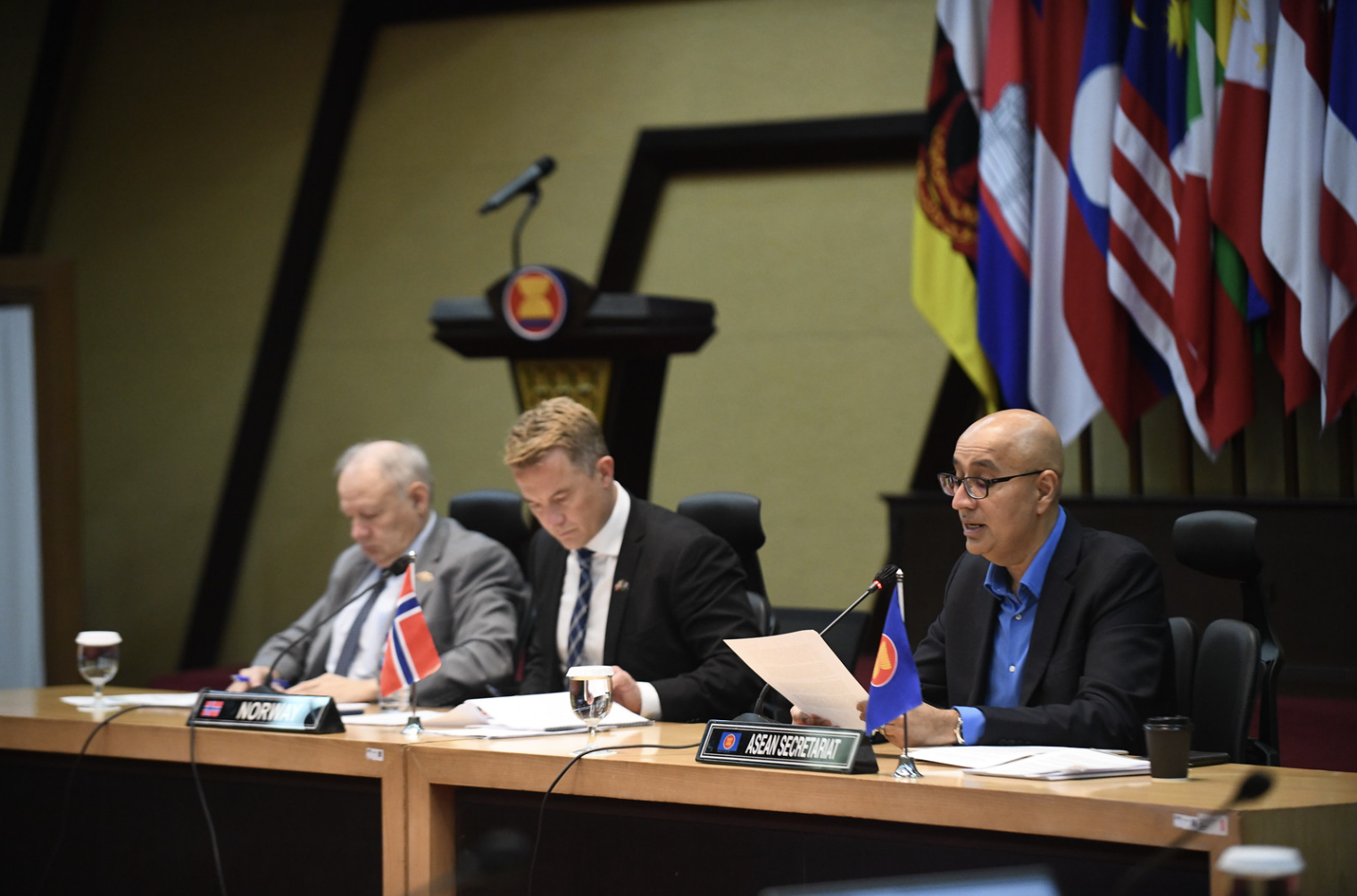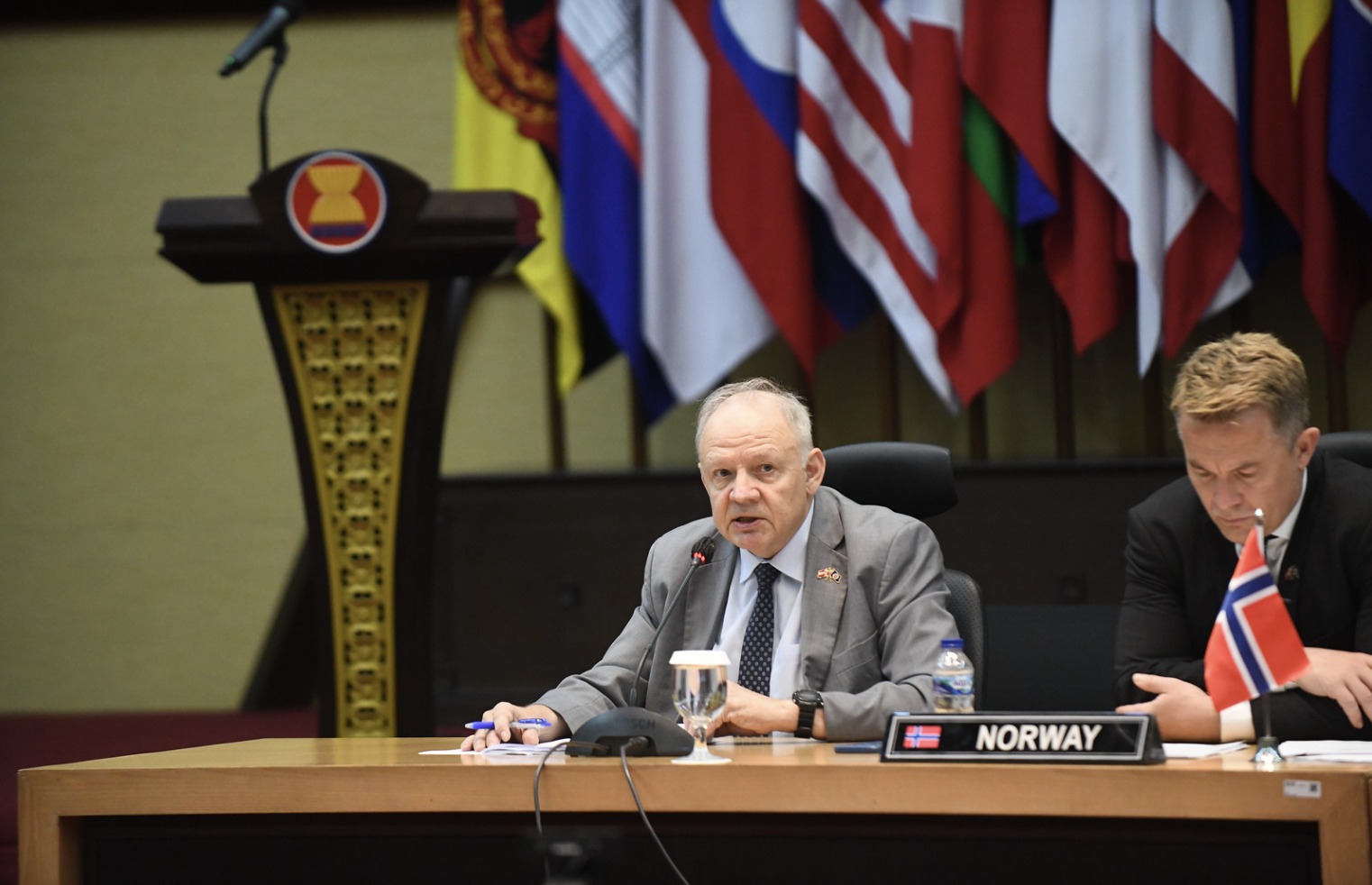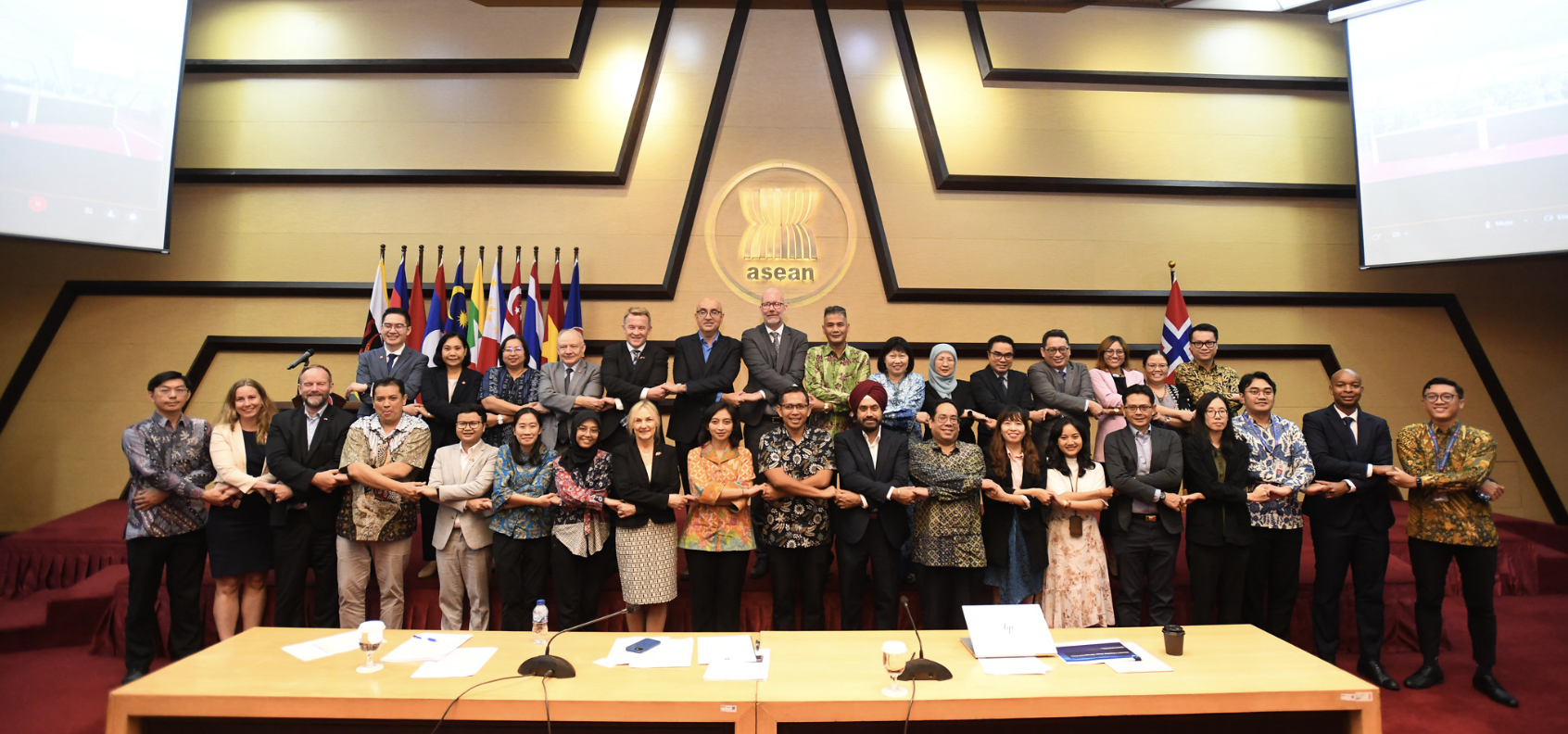i
i
Jakarta, 29 April 2024

Photo 1. ASEAN-Norway Representatives
The ASEAN Climate Change and Energy Project (ACCEPT) serves as the first integrated project between the energy and climate nexus in ASEAN region. In fact, climate change is already having wide-ranging and severe negative impacts on crucial sectors, including the blue economy. The blue economy can play significant role in climate change mitigation and adaptation. It is also involving the utilisation of marine-based renewable energy technologies to tackle the climate impact. ASEAN as a region has also established ASEAN Blue Economy Framework to adapt to future economic and environmental challenges. A collaborative effort is required to achieve more prosperous, inclusive, and sustainable implementation of blue economy. ASEAN and Norway have been continuously promoting the cooperation in areas of blue economy. One of the recent events between ASEAN and Norway was ASEAN-Norway Partnership on Blue Economy Workshop Programme that is held on 29th April 2024 in Jakarta, Indonesia. The workshop focused on knowledge sharing in priority areas of blue economy. It is also expected to discover new partnership opportunities with Norway and support the development of blue economy in ASEAN.

Photo 2. Opening remarks from H.E. Satvinder Singh, Deputy Secretary-General of ASEAN for ASEAN Economic Community

Photo 3. Opening remark from Kjell Tormod Pettersen, Norway Ambassador to ASEAN
ACCEPT II team was invited to the workshop, highlighting the urgency of having a collaborative climate action within the region. In this opportunity, H.E. Kjell Tormod Petterson, Ambassador of Norway to ASEAN and H.E. Satvinder Singh, Deputy Secretary-General for ASEAN Economic Community delivered their opening remarks which underlined the ASEAN-Norway partnership and the urge to consider blue economy for further regional sustainable development.
Overall, the workshop discussed about best practice from Norway in integrating ocean planning and management as well as the further implementation of ASEAN Blue Economy Framework. Dr Kanchana Wanichkorn, Director of Sectoral Development Directorate of ASEAN Secretariat led the interactive discussion session to uncover potential strategies that could be placed in the future. On the energy sector, marine renewable energy sources and other energy technologies or installation sited in maritime spaces should be optimised to achieve blue economy. Moreover, new GHG regulatory frameworks should be developed especially for shipping and other relevant marine industries to achieve the ultimate goal of net-zero emissions by 2050. The establishment of GHG matrix will also enhance the regional performance in monitoring the emissions.
In the discussion session, Aldilla Noor Rakhiemah, Senior Research Analyst of ACCEPT II raised a comment about the importance of having collaboration for climate mitigation and adaptation through multisectoral approach. She highlighted that the ASEAN Climate Change and Energy Project (ACCEPT) as the first project which addresses the energy-climate nexus in the region that is supported by Norway. Aldilla noted that ACCEPT is supporting ACE, serving as the secretariat of the APAEC Developing Committee, in formulating strategies for the ASEAN energy cooperation blueprint post-2025. She emphasised the importance of including the topic of the blue economy within these strategies due to its relevance to ASEAN energy cooperation. She also highlighted that multistakeholder collaboration is crucial for accelerating the energy transition and addressing the impacts of climate change in ASEAN. Additionally, Aldilla recommended considering the optimization of marine energy resources and the pursuit of economic initiatives within the energy sector, where ASEAN can learn further from Norway.

Photo 4. ASEAN-Norway Partnership on Blue Economy Workshop Programme Speakers and Participants
Moving forward, the workshop highlighted six key points that could be supported by the Norwegian in particular to accomplish ASEAN Blue Economy; which is (1) enhancing knowledge exchange and capacity building; (2) technical assistance and advisory services; (3) partnerships for research and innovation; (4) support for sustainable fisheries management; (5) policy dialogue and institutional cooperation; and (6) promotion of renewable energy development.
(IP)
Join our ASEAN Researchers Network on Climate Change (ARNECC) by registering yourself here. Become a part of our collaborative efforts to address pressing climate challenges and shape a sustainable future.
Detailed information on ACCEPT II can be found at https://accept.aseanenergy.org/
We welcome any future collaboration, please feel free to contact us at [email protected]